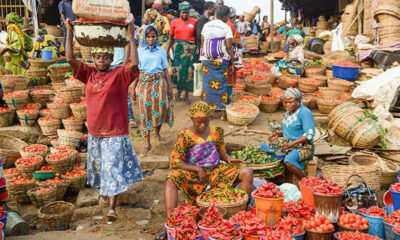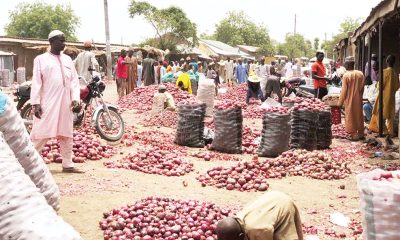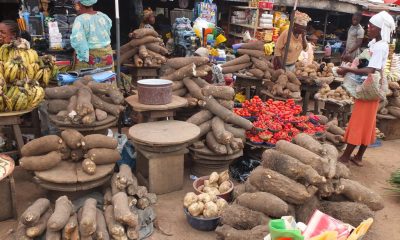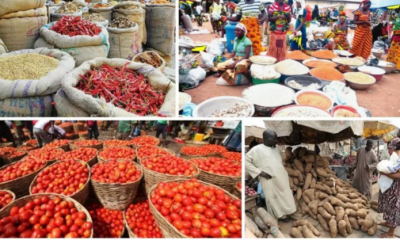News
Nigeria’s inflation rate increases to 31.70% in February – NBS

Nigeria’s inflation rate increases to 31.70% in February – NBS
Nigeria’s inflation rate increased to 31.70 percent in February from 29.90 percent in January 2024.
This amount represents a 1.80 percent increase, according to the National Bureau of Statistics’ latest CPI and inflation data, which was released on Friday.
This implies that the average price level increased at a faster rate in February 2024 than it did in January 2024.
The report read, “In February 2024, the headline inflation rate increased to 31.70 per cent relative to the January 2024 headline inflation rate which was 29.90 per cent.”
Comparatively, on an annual basis, February 2024’s inflation rate was 9.79 per cent higher than the 21.91 per cent recorded in February 2023.
Also, the month-on-month headline inflation rate in February 2024 reached 3.12%, an increase of 0.48% from January 2024’s rate of 2.64%.
This indicates that the pace at which average prices rose in February 2024 exceeded the rate of price increase in January 2024.
READ ALSO:
- Customs seize arms, military uniforms at Lagos port
- Alleged N3.5bn Paris Club Fraud: Supreme Court to deliver judgment June 7
- Man allegedly kills in-law over N20 salt in Kano
The NBS further stated, “Looking at the movement, the February 2024 headline inflation rate showed an increase of 1.80 percent points when compared to the January 2024 headline inflation rate. On a year-on-year basis, the headline inflation rate was 9.79 percent points higher compared to the rate recorded in February 2023, which was 21.91 percent.
“This shows that the headline inflation rate (year-on-year basis) increased in the month of February 2024 when compared to the same month in the preceding year (i.e., February 2023).
“Furthermore, on a month-on-month basis, the headline inflation rate in February 2024 was 3.12 percent, which was 0.48 percent higher than the rate recorded in January 2024 (2.64 percent).”
The latest inflationary surge is despite tightened monetary policy by the Central Bank.
At the latest Monetary Policy Meeting, the apex bank increased the benchmark interest rate by 400 basis points to a record 22.75 per cent.
Justifying reasons for the hike, the CBN Governor, Olayemi Cardoso, explained that members considered various scenarios including whether to hold or hike policy and concluded that inflation could become more persistent in the medium term and pose more regulatory issues if not well-anchored.
Thus, members voted for a significantly high policy rate hike to drive down the inflation rate substantially.
He mentioned that the meeting extensively discussed various distortions in the foreign exchange market, particularly the impact of speculators exerting upward pressure on the exchange rate, leading to a significant pass-through effect on inflation.
The consensus reached involved a substantial policy rate hike aimed at effectively reducing inflation.
Nigeria’s inflation rate increases to 31.70% in February – NBS
News
Just in: Factional Zamfara assembly leaders want governor to represent budget

Just in: Factional Zamfara assembly leaders want governor to represent budget
A factional House of Assembly has emerged in Zamfara state with members demanding the re-presentation of the 2025 Appropriation Bill by Governor Dauda Lawal.
The group, made up of nine lawmakers who were suspended in February 2024 over allegations of misconduct, conspiracy, and illegal sitting, convened in Gusau, the state capital, and declared the formation of a parallel legislative body.
At the session, the lawmakers elected Hon. Bashir Aliyu Gummi as Speaker of the factional assembly.
During the sitting, the faction addressed several issues, including the state’s deteriorating security situation, economic challenges, and the recent reports of mass sackings within the state civil service allegedly carried out by the Lawal administration.
READ ALSO:
- 2027: Atiku remains the best to face Tinubu, says Dele Momodu
- NLC to IMF: Your reforms inflict hunger, poverty on masses
- Nigerians deserve truth about electricity, not propaganda, labour slams power minister
The group further demanded that Governor Lawal re-present the 2025 budget, arguing that the process followed in its initial passage was flawed. The governor had originally submitted the N545 billion Appropriation Bill to the widely-known State House of Assembly led by Speaker Bilyaminu Ismail Moriki in December 2024. The bill was passed and signed into law that same month.
Present at Wednesday’s session were Hon. Aliyu Ango Kagara (Talata Mafara South), Ibrahim Tudu Tukur (Bakura), Nasiru Abdullahi Maru (Maru North), and Faruk Musa Dosara (Maradun 1). Others included Bashar Aliyu (Gummi 1), Bashir Abubakar Masama (Bukkuyum North), Amiru Ahmed (Tsafe West), Basiru Bello (Bungudu West), and Mukhtaru Nasiru (Kaura Namoda North).
Just in: Factional Zamfara assembly leaders want governor to represent budget
News
NLC to IMF: Your reforms inflict hunger, poverty on masses

NLC to IMF: Your reforms inflict hunger, poverty on masses
The Nigeria Labour Congress (NLC) has taken a swipe at the International Monetary Fund (IMF) over its policy proposals to Nigeria and other African nations on how to rejuvenate their ailing economies.
Indeed, the NLC pointedly told the IMF that its conditionalities for giving loans to Nigeria and others were inflict pains of hunger and poverty on the masses.
The NLC President, Joe Ajaero, stated this when he received the IMF team team comprising the its Resident Representative for Nigeria, Christian H. Ebeke, and, Axel Schimmelpfennig from Washington, DC.
The purpose of the visit, it was learnt, was to assess how Nigerian workers and the general populace are being affected by the current socioeconomic environment and the hardship resulting from government policies.
The IMF delegation, led by Schimmelpfennig also sought insights from the NLC regarding the state of the labour market in Nigeria. According to them, the information gathered would contribute to the IMF’s annual country report for Nigeria.
Sources at the meeting disclosed that the IMF team acknowledged that the Nigerian government has been grappling with fiscal challenges since assuming office.
They emphasized that the IMF’s recommendations are purely advisory and not mandatory, based on the prevailing realities in each country.
The delegation expressed concern that, often, governments do not follow the IMF’s recommendations to the letter, instead adapting them to align with political objectives. In effect, the IMF attempted to distance itself from the adverse consequences of some recent economic reforms in Nigeria.
READ ALSO:
- Nigerians deserve truth about electricity, not propaganda, labour slams power minister
- INEC may allow Nigerians without PVCs to vote in 2027
- Air Peace suspends flights over NIMET strike
Nevertheless, the IMF team requested continued engagement with the NLC going forward.
Ajaero made it clear that governance should prioritize citizens’ welfare over profit-making.
News
‘Enough is enough’, Tinubu directs security chiefs to stop violent attacks

‘Enough is enough’, Tinubu directs security chiefs to stop violent attacks
President Bola Tinubu has ordered security operatives to end forthwith the violent attacks in some parts of the country, especially in Plateau, Borno, and Benue states.
He gave the directive during a meeting with security chiefs at the State House on Wednesday.
The meeting was attended by Nuhu Ribadu, the national security adviser (NSA); Mohammed Mohammed, director-general of the National Intelligence Agency (NIA); Emmanuel Undianeye, chief of defence intelligence; Oluwatosin Ajayi, director-general (DG) of the Department of State Services (DSS); and Femi Gbajabiamila, chief of staff (CoS) to the President.
Speaking with journalists after the meeting, Ribadu said Tinubu declared that “enough is enough” on the resurgence of violence in some parts of the country.
The NSA said the president directed security chiefs to work with the political authorities in states and at the grassroots level to find a lasting solution to the insecurity.
He said the security chiefs had acted on Tinubu’s previous instructions by meeting with political leaders in the affected communities and states.
The NSA said the meeting offered the security chiefs the opportunity to fully brief the president about the current security situation of the country.
“This time, we were able to sit with him for hours and give a proper briefing. We also took new instructions from him,” he said.
“Insecurity is not only a government problem.
“It also involves the subnational units — the communities, local governments, and especially the governors. The president directed that we work more closely with them.
“Some of these problems are community-related. While not entirely so, that element plays a significant role.
“Mr. President is working hard to ensure that Nigeria enjoys peace and stability. We are not relenting. We will not stop until we get the results he demands.”
On the resurgence of violent attacks in Borno, Ribadu said the terrorists were planting explosives during the period of relative peace in the state.
“This enemy does not give up easily. When there’s peace for a long time, they try to shock the public with an isolated incident,” he said.
The NSA said the security situation in the country is not yet at 100 percent, while noting that there is “significant improvement”.
Since the beginning of the month, many have been killed in some communities in Plateau State.
Benue State has also recorded violent attacks as over 50 people were killed in Ukum and Logo LGAs on April 18.
-

 metro2 days ago
metro2 days agoRivers: Tinubu meets with Fubara, may lift his suspension
-
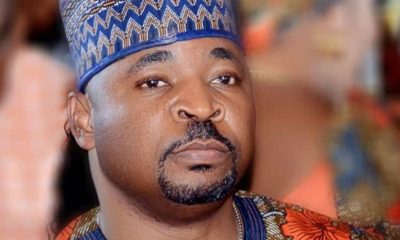
 metro3 days ago
metro3 days agoBring your children to compete with mine, MC Oluomo challenges those mocking his spoken English
-

 metro2 days ago
metro2 days agoI’m not in supremacy battle with Ooni, says new Alaafin
-

 Business3 days ago
Business3 days agoMarketers count losses as NNPC slashes petrol price
-

 metro3 days ago
metro3 days agoRivers: Fubara’s supporters praise Tinubu’s intervention with emergency rule
-

 Entertainment1 day ago
Entertainment1 day agoP-Square: Jude Okoye freed after two months detention
-

 metro2 days ago
metro2 days agoBandits attack Kwara North, kill vigilante, six others
-
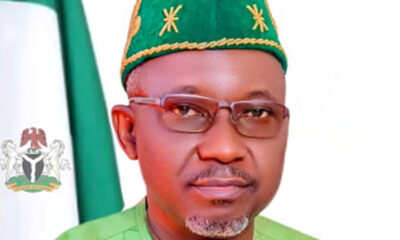
 Business2 days ago
Business2 days agoNigeria’s gas production increases by 15.6% to 227,931.65 mscf



